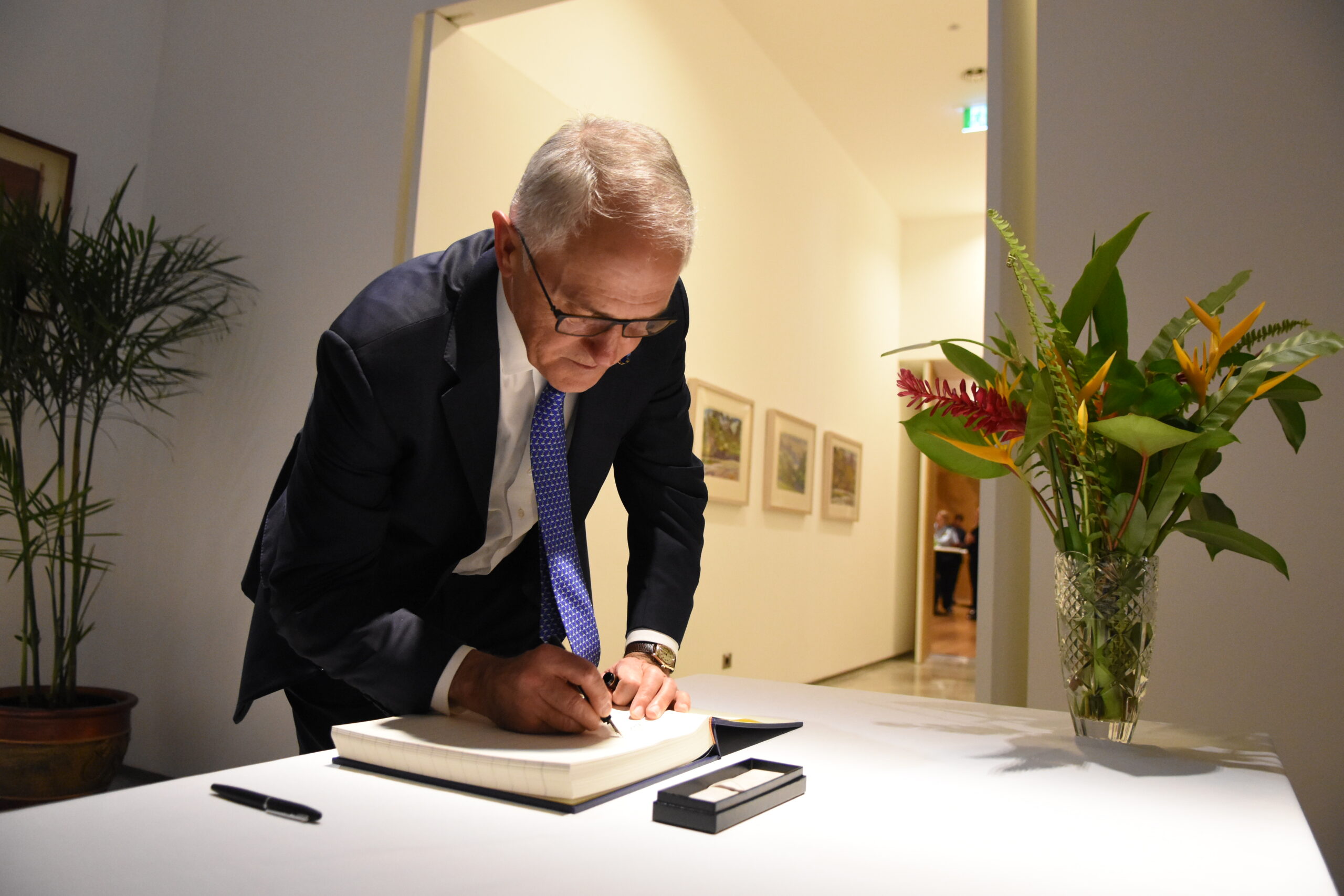The Commonwealth of Australia is getting a new Prime Minister for the sixth time since 2007, after the Liberal Party of Australia (which is, despite its name, the country’s major right wing party) decided to boot out its current leader Malcom Turnbull, who himself ousted his predecessor in a leadership spill three years ago.
Scott Morrison is to be Australia’s new prime minister after Malcolm Turnbull was forced out by party rivals in a bruising leadership contest.
Mr. Turnbull had been under pressure from poor polling and what he described as an “insurgency” by conservative MPs.
Mr. Morrison, the treasurer, won an internal ballot 45–40 over former Home Affairs Minister Peter Dutton — who had been Mr. Turnbull’s most vocal threat.
Mr. Turnbull is the fourth Australian Prime Minister in a decade to be ousted internally.
“It has been such a privilege to be the leader of this great nation. I love Australia. I love Australians,” he said on Friday.
Turnbull’s predecessor, archconservative Tony Abbott, had thrown his weight behind Dutton, but as the BBC noted, Dutton was edged out by Morrison in the party room (or caucus room in American political parlance). Having lost the confidence of his own party, Turnbull is now in his final hours as prime minister.
Turnbull has also decided to leave politics and resign his seat in the Australian parliament. A by-election will be held to fill his seat in Wentworth.
Morrison, the incoming prime minister, served in the governments (we in the United States would say administrations) of both Abbott and Turnbull.
Here’s a backgrounder on his political career from the BBC:
Mr. Morrison, a former Tourism Australia official, entered parliament in 2007 and has since held three key ministerial portfolios.
- A social conservative who appeals to the moderate elements of the Liberal party
- Rose to national prominence as immigration minister in Tony Abbott’s government
- Built a reputation as a tough operator in enforcing Australia’s hardline “stop the boats” policy
- Drew criticism over the controversial asylum seeker policies and offshore detention centres
- Seen as a pragmatic, ambitious politician who has long eyed the top job
- The 50-year old father-of-two is a leading religious conservatives and opposed last year’s same-sex marriage bill.
Speaking after the vote on Friday, Mr. Morrison said he would be working to “bring our party back together which has been bruised and battered this week”.
It has now been more than a decade since an Australian Prime Minister served out their entire term. Leadership spills have felled the last four PMs.
The political and international editor of the Sydney Morning Herald, considered by many to be Australia’s newspaper of record, has harshly criticized the latest leadership spill as “pointless” in a searing column, writing:
Of all the pointless convulsions in Australian politics in the last decade, this is surely the most pointless. It achieved no benefit on any level but came at great cost to the government and to Australia.
There was no great principle at stake.
The only policies at issue could have been worked through with a bit of goodwill, as Malcolm Turnbull said. The new prime minister isn’t even as electable as the one he replaced.
Only fifty-four percent of the Australian electorate had even heard of Scott Morrison in an April recognition poll conducted by the Australia Institute. In truth, a piece of factional foot-stamping within the ruling party created an earthquake.
It brought down a prime minister, destabilised the government, damaged the standing of the ruling party, unsettled the country, and made Australian democracy an even bigger laughingstock. Without satisfying the disgruntled faction that started it all.
The Australian Labor Party — which is currently Her Majesty’s Official Opposition in Parliament — went through its own drawn out period of tumult and strife when it was in power between 2007 and 2013. Former Prime Ministers Kevin Rudd and Julia Gillard repeatedly battled for the party’s leadership during that period.
Rudd, who had led Labor through a successful election cycle in 2007, was ousted by Gillard in 2010, though he remained in Parliament.
Three years later, after a couple of false starts, the tables were turned and Rudd returned as Prime Minister after Labor MPs lost confidence in Gillard, fearing defeat in an impending election. (They lost anyway, even after bringing back Rudd.)
That 2013 election ended in victory for Tony Abbott and the Liberal Party of Australia. But the archconservative Abbott proved to be an in incredibly ineffective leader and his restless party dumped him for Turnbull in 2015.
Turnbull was able to keep the Liberal Party in power in the 2016 Australian federal election, but his party nonetheless lost fourteen seats to Labor.
After two additional years Prime Minister, Turnbull’s own popularity has been sagging and it’s now his turn to be ousted. It remains to be seen if Morrison can lift his party’s fortunes before the next federal election in 2019.
Australian Labor, now led by Bill Shorten, is ready to pounce.
“Changing Liberal leaders is a bit like rearranging the deckchairs on the Titanic,” the party tweeted, posting an animation of a large sinking ocean liner.
“The problem is actually the policies: cutting funding to schools and hospitals, cutting penalty rates, and trying to give the big banks a tax handout.”
Shorten pronounced Australian politics “a brutal business” in a statement released through his social media accounts and offered Turnbull best wishes.
“I hope Malcom knows that I have always respected him as a formidable opponent, as an advocate of great intellect and eloquence and as someone who came to parliament, relatively late in life, because he was driven by the desire to serve. Australian politics will always need people like that, on all sides,” Shorten said.

